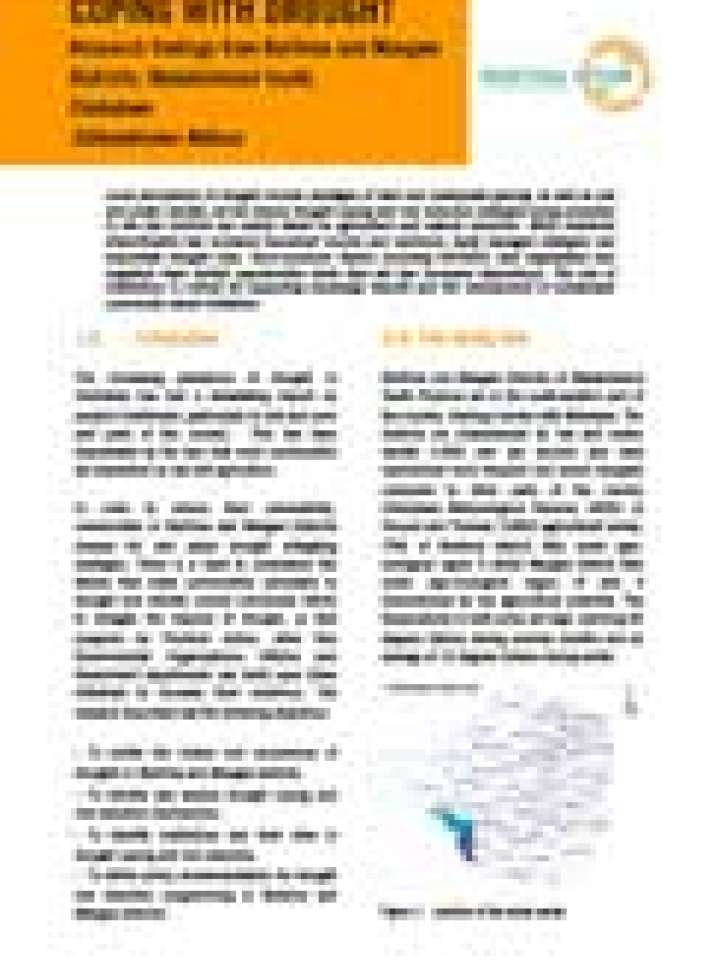Coping with drought: research findings from Bulilima and Mangwe districts, Matabeleland South, Zimbabwe
The research undertaken in this study aimed to profile the history and occurrences of droughts in Bulilima and Mangwe districts (Zimbabwe); identify and analyse drought coping and risk reduction mechanisms; identify institutions and their roles in drought coping and risk reduction; define policy recommendations for drought risk reduction programming in Bulilima and Mangwe districts.
It asserts that the increasing prevalence of drought in Zimbabwe has had a devastating impact on people’s livelihoods, particularly in arid and semi arid parts of the country. This has been exacerbated by the fact that most communities are dependent on rain-fed agriculture. In order to reduce their vulnerability, communities in Bulilima and Mangwe Districts prepare for and adopt drought mitigating strategies.
This study was undertaken with a need to understand the factors that make communities vulnerable to drought and identify current community efforts to mitigate the impacts of drought, so that programs by Practical Action, other Non Governmental Organisations (NGOs) and Government departments can build upon these initiatives to increase their resilience.
Explore further
